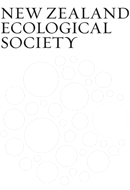Tēnā koe,
We are reaching out on behalf of the Ngā Rākau Taketake – Risk Assessment and Ecosystem Impacts theme of the Biological Heritage National Science Challenge seeking Expressions of Interest (EOIs) to participate in our work planning and research team.
Ngā Rākau Taketake is the programme within the Challenge to address myrtle rust and kauri dieback. Building on work from the Ngā Rākau Taketake scoping group and the kauri dieback and myrtle rust science strategies, we have been developing a draft three-year research plan (2020/21 – 2022/23) to understand the impacts of the diseases and perform risk assessments to support management and research priorities. Now we are refining the work plan and forming the team to achieve our goals.
You are getting this invitation because we believe that you may have the interest and skills to contribute towards saving our taonga ecosystems from kauri dieback and myrtle rust—or may know others who do.
We encourage you to please pass on this offer to anyone you know who may be interested. In particular, we need your help reaching out to those who may not yet be involved in kauri dieback and myrtle rust related work but who could be valuable additions to the team.
About our research theme
Our overarching goal is to understand which species and ecosystems are most at risk and what the impacts of the diseases are, so we can prioritise efforts and inform better management decisions.
In this theme, standardised impact measures are being developed to quantify the impact both kauri dieback and myrtle rust are having on affected ecosystems. We take a holistic view of ecosystems, meaning the impact measures will also examine broader ecological impacts, including on associated flora and fauna, on ecosystem functions and on human cultural, social and economic relationships. We also take a holistic view of the threat, meaning we will consider the effects of both the pathogens themselves and the tools and systems used to manage them.
Our goal requires first characterising kauri and Myrtaceae ecosystems, establishing baselines against which to measure change, and prioritising key indicators for monitoring. Throughout this process, we will build on existing work and strengthen the collaboration between kaupapa Māori and western science approaches to ensure indicators are relevant and meaningful across communities.
The impact measures will in turn inform a more comprehensive risk assessment for ecosystem impact, and identify where risk lies, both geographically and with regard to the nature and degree of impact. Ecosystem impact assessment is comprised of measures of ecosystem health and resilience, using an integrated western science and Mātauranga Māori framework.
Māori have long advocated for an ecosystem-level approach to kauri dieback and myrtle rust, and this workstream aims for a kaupapa Māori and ecosystem-level approach, focused at site-to-landscape scales.
You can read about our draft work plan in the attached overview document. Please note that our work plan is still very much in draft form and will be revised iteratively over the life of the research, so there is still ample opportunity to shape the work we do.
How you could be involved
Let us know if and how you would be interested in being involved—whether in guiding the research planning, actively participating in the mahi, or simply being kept informed of progress.
Our aim is to look widely and build a team that captures a range of capabilities, perspectives and experiences, including providing opportunities for early career researchers and people from outside formal research organisations. In selecting our team, we will actively promote the principles for equity, diversity, access and inclusion and the values established by the wider Challenge.
Please complete the web form at the bottom of this page by 5:00 pm Wednesday, 1 July (Note that this date has changed).
We will consider EOIs as they are returned to us, so do not delay. However, as the work plan will be iterative, our team may evolve along with it, so please reach out at any time even after the deadline has passed.
Note that receiving this invitation email, submitting an EOI or participating in a planning workshop does not guarantee you will be selected for the team or receive funding.
If you have any questions or comments, please feel free to contact one of the theme co-leads. Please see here for more information about the research theme.
Ngā mihi,
Simon Wegner, co-lead
simon.wegner@scionresearch.com
Luitgard Schwendenmann, co-lead
l.schwendenmann@auckland.ac.nz
Nick Waipara, Māori advisor
